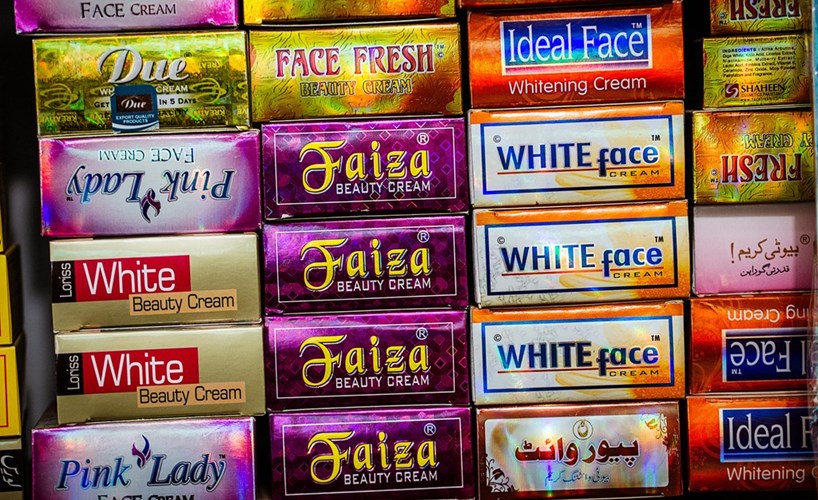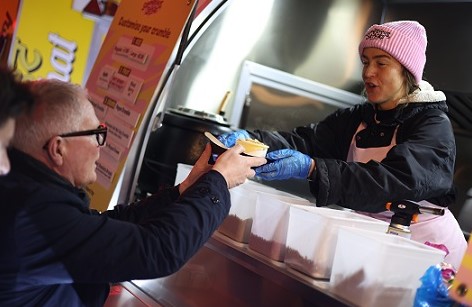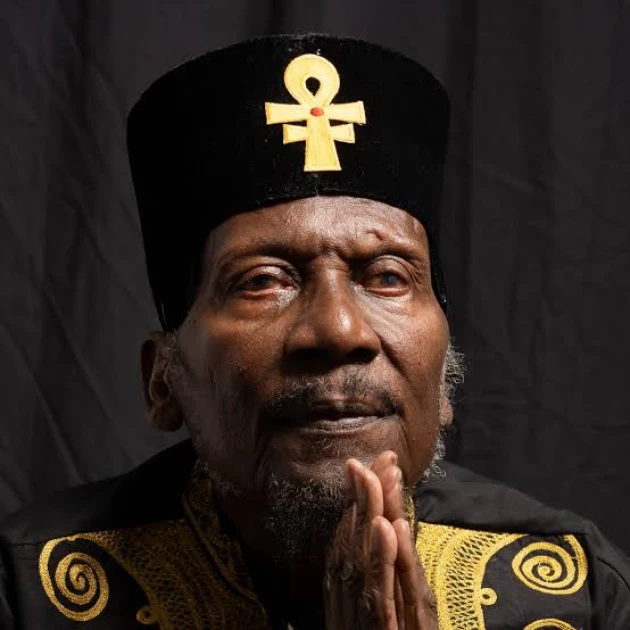Advent is a good time to consider how the Church talks about lightness and darkness, and the impact that this can have on people of colour, a recent World Council of Churches (WCC) seminar has heard.
Speakers at the panel discussion, “Decolonising Beauty: Mission, gender, racism, and health in the skin-whitening pandemic”, came from several countries, including Jamaica, South Africa, India, and Korea. The demand for skin-lightening products opened up a wider conversation about whiteness, colonialism, and racism.
Adele Halliday, the Anti-Racism and Equity Lead for the United Church of Canada, described how “myself and many people around me grew up with understandings imposed from the outside that there was something wrong with the colour of our skin, that to be dark-skinned, to be Black, is not desirable, and to be light was better.” She now understood this as “internalised racism . . . There is nothing wrong with the colour of my skin.
“I can say that loudly and clearly.” But she continued to see children as young as three who felt that they were not beautiful because their skin was “too dark”.
Advent was a good time to consider the “expansive ways” in which it was possible to think about darkness and light, she said. “If we only think about darkness as bad and lightness as good, that impacts how people think about themselves and treat themselves and desire to be light and white, as opposed to celebrating the way in which God has created them.”
Instead of prayers to “move us from darkness to light” it was possible to say “move us closer to you God”, “help us move away from sin”, or “guide us towards health and wholeness”. Dr Nomonde Mqhayi-Mbambo, a medical doctor who was representing the Methodist Church of South Africa at the seminar, described how skin-bleaching had begun during the era of colonialism and apartheid, but remained prevalent.
She said: “From a Christian perspective, unfortunately, being Black or anything that is Black is associated with evil, is associated with darkness.” This concept had been brought by missionaries, she said. There was a need to “decolonise the mind”.
Carla Moore, a lecturer at the Institute for Gender and Development Studies at the University of the West Indies, in Jamaica, spoke of the prevalence of skin-bleaching in Jamaica, despite the fact that it was illegal. Some of the “theorising” about the phenomenon was “one-dimensional”, she said.
Research suggested that “bleachers” in Jamaica didn’t have an “intrinsic self-hatred. . . But what they do find is an extreme awareness that being light-skinned grants you a set of opportunities that being darker-skinned does not grant you in Jamaica.” In Jamaica, people spoke of skin being “dark like sin”.
“Every time I hear religious groups talking about something good, it’s ‘towards the light’. Every time I hear religious groups talk about something bad, it’s ‘away from the darkness’. [Think] what the dark-skinned people must feel”.
Historical associations of whiteness with desirability and superiority were not solely the product of colonialism, speakers noted. The Revd Dr Yoo Jin Cho, assistant professor of systematic theology at Honam University, South Korea, and a pastor in the Presbyterian Church of Korea, noted that in those countries that had not been colonised by the West, skin-lightening “seems to come from their own culture”.
It was also a class issue, she observed: “Light skin means not having to work under the sun.” One of the most important aspects of the Korean beauty industry — now widely exported — was “porcelain skin”.
Dr Vethakani Vedhanayagam, a theological educator in the Church of South India, said that the association of whiteness with beauty and desirability was present in Hindu culture, and related to the caste system. The panel was chaired by Yolande Robertson-Greene of Pivot, an organisation that seeks the empowerment of migrant women in Northern Ireland.
She praised the integrity of “Naja”, the owner of a cosmetics company in Jamaica which sold skin-whitening products, who had joined the panel and enabled it to avoid “preaching to the choir”.
“Initially, of course, I was hesitant to start a skin-white-lightening line due to my Christian beliefs, but being a businesswoman I had to analyse the market, and I was getting numerous messages for lightening products,” Naja said. She argued that the media played a big part in shaping young children’s ideals of beauty.
“If those children don’t learn from those around them to love their skin colour, they might just end up being one of my customers.” Dr Masiiwa Gunda, a WCC programme executive on overcoming racism, said: “I don’t want us to end up using this kind of conversation to attack the victims of a system that are trying to get by and meet the expectations that have been placed on them by a racist system . . .
“We have a racist industry that is being funded by the victims of racism.” The panel discussion concluded with comments from “Pastor Angela”, who spoke of the use of scriptures in linking sin to darkness and suggested that “colonisation and those who have colonised have used those scriptures to keep people under.”
She reported a “movement away” from bleaching and hair relaxation in her congregation in the UK, where “the glory of natural black hair” was being celebrated. In 2017, the global market value of skin-lightening was calculated as about £3.8 billion, expected to reach £7 billion by 2027.











